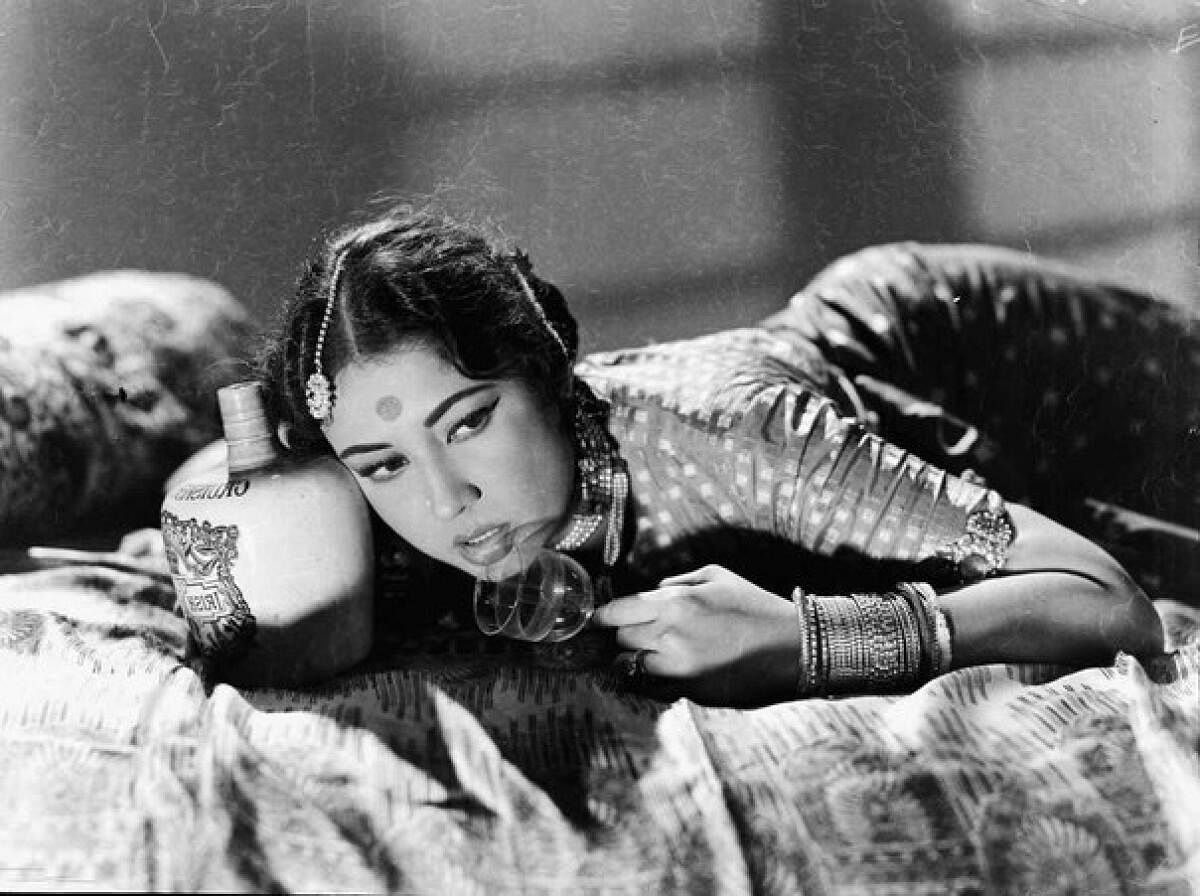
Some people are to remember
And some to perish
But a few people are so memorable
That one cannot but cherish.
This quatrain of an unnamed poet appears to have been written for the legendary actor of Hindi cinema, Meena Kumari. Volumes and tomes are insufficient to describe Meena Kumari who was more of a phenomenon than a persona. In an era when very few female actors were active in cinema, she not only acted but excelled in such a way that she became a benchmark for acting.
The great thespian and Shakespearean actor Sir Laurence Kerr Olivier used to say, “acting is all about emoting; emoting on the stage or silver screen.” So very true because emoting comes only when one has seen and experienced the vicissitudes of life.
Mahjabeen Bano (later Meena Kumari) witnessed life’s upheavals from close quarters. The breadwinner in the Bux family at a tender age, fate remained unkind to her till she shuffled off this mortal coil on March 31, 1972 at the young age of 38. Her own life was a saga of unhappy experiences and failed relationships that led to alcoholism and made her dipsomaniac. Excessive drinking proved to be Meena Kumari’s undoing. In her own words, “Jaan-e-may mein zindagi dubo dee maine” (I drowned my life into the goblet of wine).
Some critics and detractors are of the view that Meena Kumari carefully crafted her tragic image to seek sympathy. They’re mistaken. Meena Kumari wasn’t a seeker of sympathy. Nor did she ever wallow in self-pity. Misfortune was her constant companion in life. That made her look so sombre and sullen at times. Yet, she never sulked. Whether it was her movie ‘Baiju Bawra’ (1952), ‘Parineeta’ (1953), ‘Sahib Bibi Aur Ghulam’ (1962), ‘Aarti’ (1962), ‘Dil Ek Mandir’ (1963), ‘Kaajal’ (1965), ‘Phool Aur Patthar’ (1966) or ‘Bheegi Raat’ (1965), among others, every film left an indelible impression on the hearts and minds of the cine-goers.
Mind you, Hindi cinema was male-dominated during her times when heroes got all the acclaim and heroines or female characters played the second fiddle. She broke that ceiling with her powerful acting and often turned out to be a female protagonist. It was no mean achievement as it made her an early champion of women’s empowerment in Hindi cinema.
More than a profession, acting was Meena Kumari’s passion and that’s the reason, she never resorted to using glycerin while shedding tears in a role. She shed real tears because tears would come to her faster than smiles. After all, all art is autobiographical. In her own words,
Har naye zakhm par ab rooh bilakh uthti hai
Honth agar hans bhi padein,
aankh chhalak uthti hai
Which translates to,
Every new wound breaks down my soul
Even if a rare smile appears on the lips,
tears glisten in the eyes
Poetry was her refuge. It was her friend in solitude. Though her husband Kamal Amrohi didn’t consider her to be a worthwhile poet, Meena Kumari wrote poignant poetry. Poet-lyricist Gulzar will vouch for that.
Writing was a cathartic experience for her. She wrote Urdu poetry under the nom de guerre (takhallus), Naaz. Never an attention-seeker and too loud, Meena Kumari chose to remain in the background and that added to her mystique.
The swan-song ‘Pakeezah’ (1972) was literally an icing on the cake of Meena Kumari’s cinematic sojourn. The film is like poetry on the celluloid. One cannot imagine anybody else in this film barring Meena Kumari.
She had a pair of the most beautiful eyes. Being one of the most distinctive features of her personality, many of her films including ‘Pakeezah’ and ‘Sahib Bibi Aur Ghulam’ featured several close up shots of her eyes. She also had a husky voice and her Urdu diction was impeccable. We tend to use the superlatives such as ‘great’, ‘genius’ and ‘legend’ quite loosely, but in Meena Kumari’s case, all three and even more adjectives seem to be the most apt, apposite and appropriate. Words fail to define her.